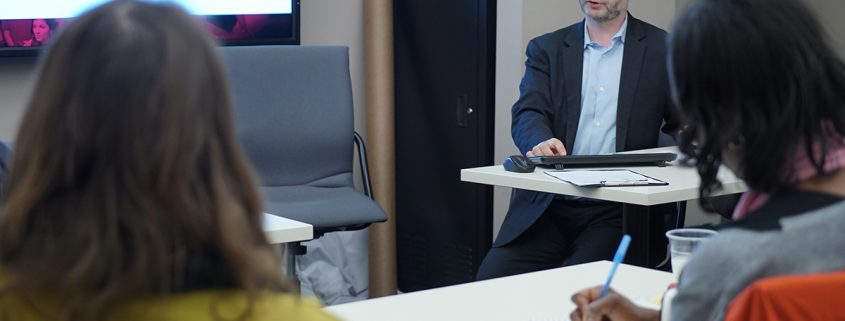USC’s diversity, inclusion training week seeks to eliminate workplace biases
Diversity and Inclusion Training Week started Monday and will continue in a series of seminars, training and exercises throughout the week.
The purpose of the event is to eliminate unconscious biases and to increase diversity in the workplace.
In addition, faculty will examine how to better focus on inclusion in teaching in order to engage a diverse student population and provide a safe space for sensitive topics.
“We all have assumptions about what diversity and inclusion are, but may not realize our own behavior or our lack of knowledge could in fact be helping to maintain a less diverse, less inclusive, less respectful place for us to be together in,” said Stephen Smith, co-chair of the Academic Senate’s Campus Climate Committee and an event speaker.
He hopes that the event will have an effect on interactions between students and faculty.
“It will send a very clear message from the University that diversity and inclusion is important to the entire community and that faculty are encouraged to be role models, as well as to know their responsibilities,” Smith said.
During sessions this week, faculty from many departments will present their findings on topics regarding diversity in an effort to educate their audience.
Sessions include “Strategies for Talking About Race and Racism in the Classroom,” “Implicit Bias Training Workshop,” “Empowering First Generation College Students — Understanding Stereotype Threat Interventions,” “Trans Wellness Panel” and “STEM: Inclusive Engineering for Everyone.”
Through participating in this event, professors all want to increase diversity both on campus and in their specific areas of expertise.
Anthony Maddox, a professor of clinical education and engineering, shared his plans to develop a Center for Engineering in Education to explore the potential impact of teaching engineering at all educational levels with his colleague John Brooks Slaughter.
“Slaughter and I felt that, to some degree, everyone should practice engineering thinking,” Maddox said. “We are committed to creating ways for engineering to be more accessible to people and increase opportunities for them to apply such thinking in life’s activities.”
He believes that the key to moving forward is not to be afraid of technology, but instead to learn and take advantage of it.
“We believe that through non-formal and informal learning, more people may consider how engineering thinking can improve their lives and offer new perspectives of the increasingly technology-rich world around them,” Maddox said.
Smith, on the other hand, expressed his hope to introduce members of the faculty to the resources of the USC Shoah Foundation, an organization dedicated to gathering experiences of survivors and witnesses of the Holocaust and other genocides.
“We have 54,000 people in our archive whose personal life histories give insight into human behavior,” Smith said. “The resources are available in educational settings, from middle school through higher education. We will use the event to introduce the content to faculty for use in their own classrooms.”

